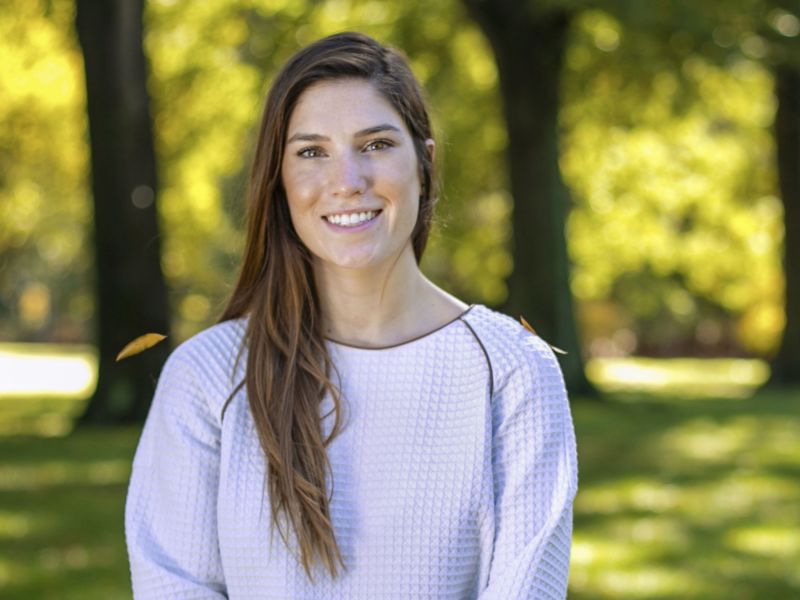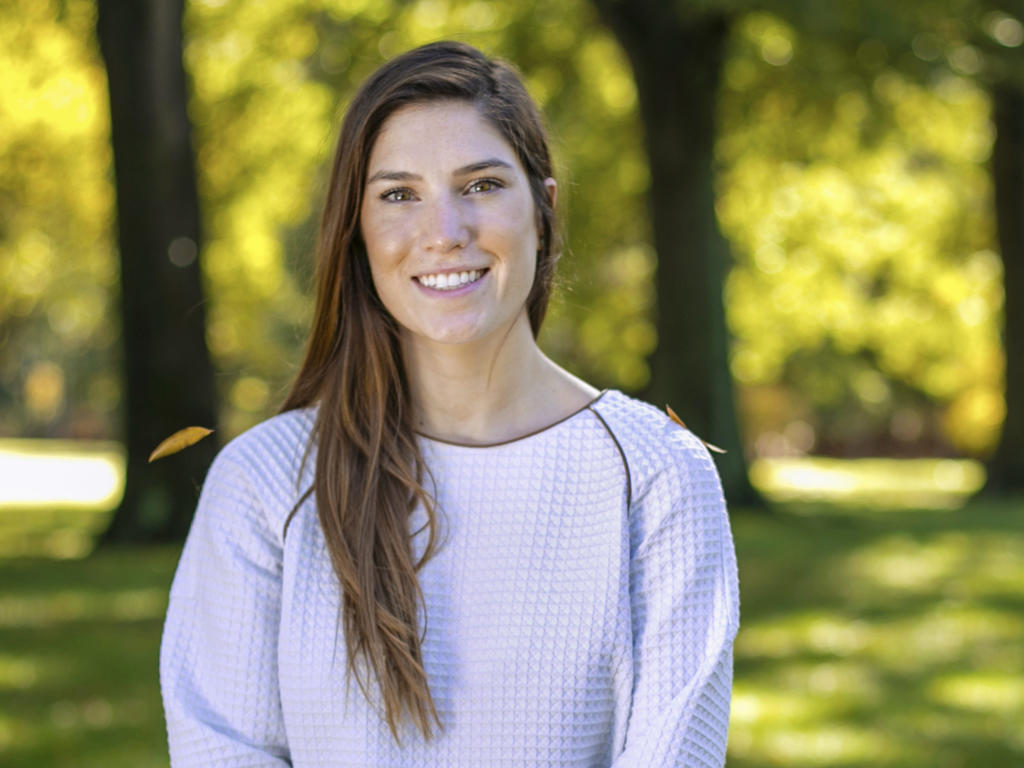Hometown: Boston, MA
Major: Environmental Studies
Extracurricular activities: Rhodes Garden Fellow, Evergreen Community Farmers Market coordinator, Kappa Delta Sorority Sisterhood Chair, former PanHellenic delegate, member of the Phi Alpha Theta National History Honor Society, volunteer with Wilson Animal Rescue, Senior Gift Committee member, yoga instructor.
Tell the story of how you got to Rhodes College.
My decision to come to Rhodes was greatly influenced by the values I gained through travel. My travels taught me about the importance of immersing myself in other cultures, even when they took me far outside my comfort zone. When visiting Rhodes, I was welcomed onto campus by people representing myriad different backgrounds, all of whom were connected through Rhodes to the cultural richness of Memphis. Rhodes’ emphasis on the importance of learning the history, culture, and traditions of Memphis and the region was unparalleled by any of the other schools I considered. The fact that I would not only become a part of Rhodes, but a part of the Memphis community, ultimately influenced me to come here, and it is a decision that has lived up to all my wildest expectations.
How have you changed since beginning your studies at Rhodes College?
I came to Rhodes expecting to major in chemistry, but after taking an introductory anthropology course, I realized that I was more interested in the investigative aspect of courses that challenged me to ask questions. I coupled my interest in different cultures with my passion for the environment, and suddenly found myself majoring in environmental studies. This decision by far changed me the most, because it gave me an opportunity to expand my interests and find a subject that I could truly connect to and completely involve myself in. This helped me grow as an individual, because it allowed me to become confident in my ability to ask my own questions and develop my own conclusions.
Tell us a little bit about your involvement in the Rhodes garden and the Evergreen Community Farmer’s Market. How did you become interested in these pursuits, and do they relate to your academic studies?
While taking an urban studies course my sophomore year, I researched food deserts. Through this, I became interested in the topics of food accessibility and sustainable local food systems. Cooking is one of my favorite hobbies and I am now acutely aware of how the ingredients I use become available to me. My passion for food has guided me towards a more critical analysis of the issues related to food—mainly issues in production and accessibility.
I first became involved in the garden and market as the Garden Fellow. I’ve always enjoyed working with the earth and was really excited to cultivate foods that would ultimately be sold at our very own Evergreen Community Farmers Market. Another main focus of the fellowship has been to examine the relationship of food deserts in Memphis by looking at factors in specific neighborhoods that may exacerbate the issue. One way communities are attempting to combat the ever-present threat of food deserts is by creating farmers markets, and a huge accomplishment for our own farmers market was the successful implementation of the Double Green$ Program, which allows SNAP Benefit (Supplemental Nutrition Assistance Program, or food stamp) holders to double their SNAP value up to $10 when used at local farmers markets. Now, people using food stamps have a combined $20 to spend on locally grown fruits and vegetables that they otherwise might not have access to.
The sustainability of local food systems through the implementation of community gardens and markets is an incredibly important topic that has increasing relevance in Memphis, as well as in other cities across the nation. This year I worked with Professor Kasper on an ethnography that will help to map the impact of different farmers markets on the overall Memphis foodscape. I hope that our research can begin to help develop ways to remedy the food desert issue that affects the lives of so many.
What are your plans for next year?
Fall semester of my junior year I studied abroad in Hong Kong and had the chance to travel across Southeast Asia, and the people I met there helped further my interest in environmental conservation and sustainability related to food production and distribution. I want to go back to Asia, because I feel that it has the highest untapped environmental potential and could teach me how we can best utilize and protect our own resources in the U.S. Ultimately, I would love to study environmental engineering in graduate school and work on solving issues that negatively impact our global environment.

